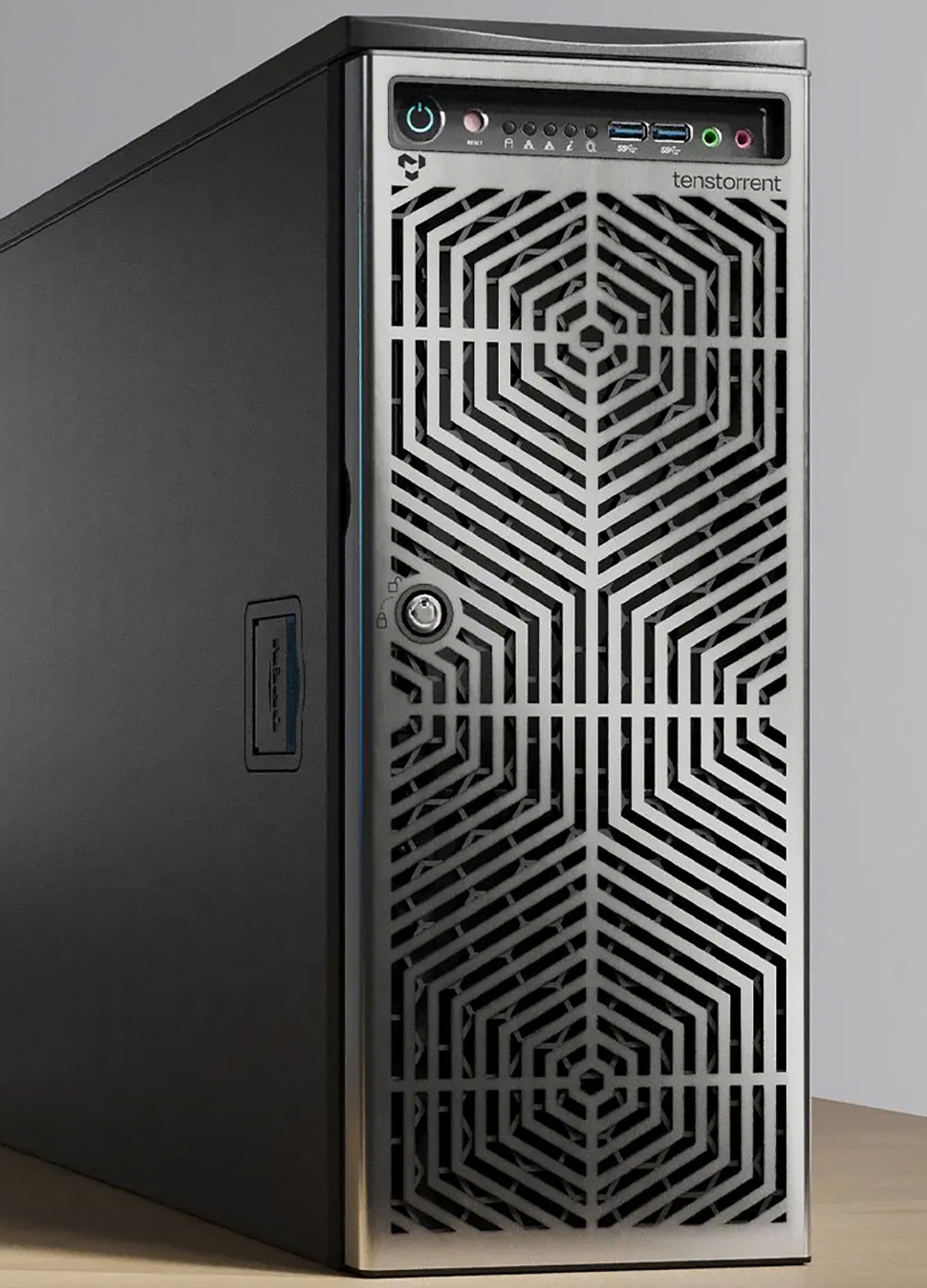Tenstorrent, an AI and RISC-V processor startup led by legendary chip architect Jim Keller, the mastermind behind AMD‘s Zen architecture, launched its first hardware back in March 2024. Grayskull is a RISC-V alternative to GPUs, and the firm produced two Grayskull-powered DevKits – Grayskull e75 and the more powerful Grayskull e150.
The company has now followed up those initial releases with Wormhole, offering two PCIe boards, n150s and n300s, with flexible, scalable processors built with Tensix Cores. The boards include a compute unit, network-on-chip, local cache, and “baby RISC-V” cores. Tenstorrent says they offer superior performance for the cost compared to traditional GPUs, and broad data precision format support.
n150s has more compute per ASIC (72 Tensix cores), but n300s has two ASICs on the card (128 Tensix cores – 64 per ASIC). Although Tenstorrent is still selling the Grayskull Dev Kits, it plans to switch its entire focus to Wormhole, and this, in turn, will be superseded by Blackhole next year.
Wormhole workstations
While you can buy the Wormhole boards individually, Tenstorrent is also selling them in pre-built AI workstations with Intel and AMD configurations. The TT-LoudBox is equipped with two Intel Xeon 4309Y processors, capable of running between 2.8 and 3.6 GHz, backed by 512GB of RAM and four n300s cards in a 2×4 mesh. This model also features 4TB of NVMe storage and dual 10 GbE copper Ethernet connections. It is priced at $12,000 and offers optional rack mounting for easy integration into various IT setups.
Tenstorrent’s other AI workstation, TT-QuietBox, contains an AMD EPYC 8124P processor with 16 cores, operating at speeds between 2.4 and 3.0 GHz, and four liquid cooled n300s cards in a 2×4 mesh. This version is designed for environments where noise reduction is crucial but without compromising on performance. It also comes with 4TB of NVMe storage and dual 10 GbE copper Ethernet ports. The TT-QuietBox is available for $15,000 and can also be rack mounted.
Both units are obviously targeted at professionals who need reliable and powerful computing solutions. ServeTheHome says, “The company’s idea is that by offering eight ASICs in a developer box they can all be used together for a single developer, or be partitioned to support multiple developers at a time.”





















+ There are no comments
Add yours